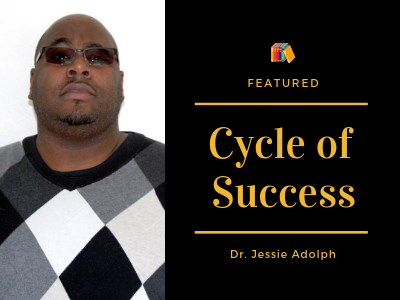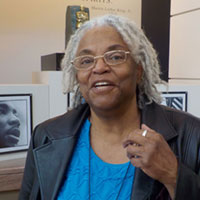This is a guest post written by Dr. Jessie Adolph, an instructor of English at Lincoln University.
oracle | ˈôrək(ə)l | noun 1 a priest or priestess acting as a medium through whom advice or prophecy was sought from the gods in classical antiquity. • a place at which divine advice or prophecy was sought. • a person or thing regarded as an infallible authority or guide on something: casting the attorney general as the oracle for and guardian of the public interest is simply impossible. 2 archaic a response or message given by an oracle, typically one that is ambiguous or obscure.
Dr. Paula Roper, who I affectionately call “The Oracle” served a crucial role in my development as an educator and a scholar. During our collaborations on subject topics for English 1000, she transformed the library from a center of archaic readings into a vibrant prophetic learning experience. She introduced my students to peer-reviewed sources and resource methods making my lessons on historical trauma, spoken-word poetry, and hip-hop culture relative to the lives of my students. Explicitly, she instructed my students about African and Global Studies traditions influencing popular culture in America. The undergraduates learned “Nommo,” the power of the word (an Akan word meaning “To Make One Drink), can be utilized as a form of resistance and/or healing to build community. In other words, the young scholars learned they had a voice which can create the sound of power to change their reality. This in mind, she inspired me as an academic to utilize my voice for change.
Dr. Paula Roper, the Oracle, and Mizzou library helped me to earn my Ph.D. in Africana Diaspora Studies. My dissertation entitled “Dee-Jay Drop that Deadbeat;” Hip-hop’s Remix of Fatherhood Narratives” an interdisciplinary project required a substantial amount of research. Specifically, I examined hip-hop fatherhood narratives that constructed imagery of African American fathers and Black identity formation. Dr. Roper proved instrumental to the project by assisting me to compile an eclectic reading list African diasporic, history, sociology, and psychological to complete my task. She helped me to maximize my time at the library—I could not have become Dr. Adolph without her expert-tutelage.
Cycle of Success is the idea that libraries, faculty, and students are linked; for one to truly succeed, we must all succeed. The path to success is formed by the connections between University of Missouri Libraries and faculty members, between faculty members and students, and between students and the libraries that serve them. More than just success, this is also a connection of mutual respect, support, and commitment to forward-thinking research.
If you would like to submit your own success story about how the libraries have helped your research and/or work, please use the Cycle of Success form.

